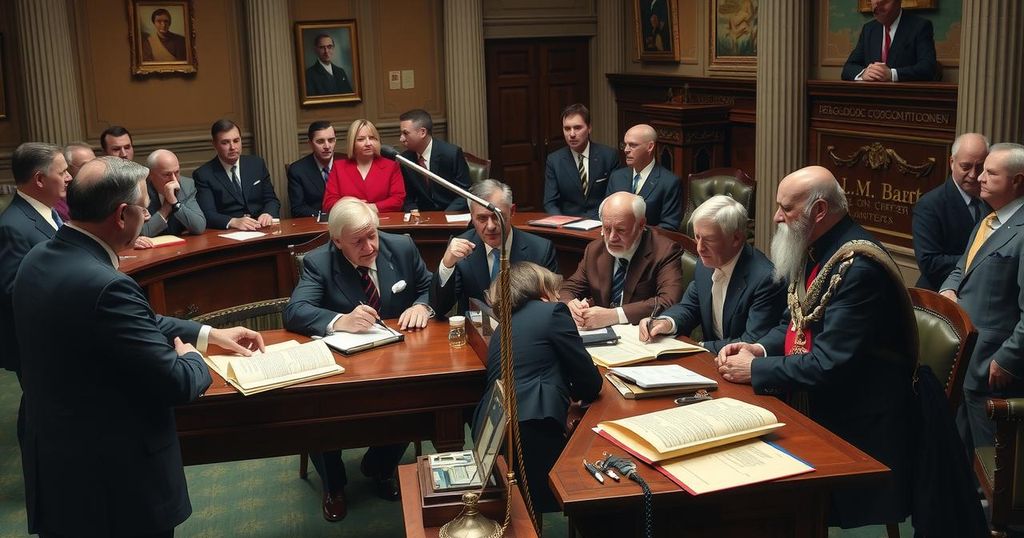Four years after the January 6 insurrection, Congress still hosts 157 election deniers, demonstrating the diminishing impact of the election denier label. Despite attempts at accountability, significant election denier influence persists, contrasting sharply with the quicker responses seen in other democracies. The slow response and normalization of these actions undermine the integrity of the democratic process in the U.S.
Four years following the violent insurrection at the United States Capitol on January 6, 2021, which aimed to overturn the election results, a significant number of election deniers remain in Congress. Donald Trump, who is anticipated to reclaim the presidency imminently, is accompanied by substantial loyalty among Congressional members, notably 157 election deniers within the newly constituted 119th Congress. This figure, while reduced from 172 in the preceding Congress, illustrates the diminishing weight of the ‘election denier’ label in current political discourse.
The count includes 137 election deniers in the House and 20 in the Senate, equating to over 38% of Senate Republicans and approximately 62% of House Republicans. Prominent figures among them include Senators Ted Cruz and Rick Scott, along with the entirety of the Republican House leadership. Moreover, across the country, the influence of election deniers extends beyond Congress, with 10 of the 27 Republican governors also maintaining such positions.
In contrast to the decisive responses seen in countries like South Korea and Brazil following similar attempts to destabilize democracy, accountability measures in the U.S. remain muted and slow-moving. This discrepancy highlights a stark difference in political repercussions faced by election deniers, with the American political landscape exhibiting no substantial punishment for these actions. Legal efforts to hold Trump and his allies accountable have languished, criticized for their cautious, methodical nature which fails to adequately address the severity of the threats posed to democracy.
The lack of urgency in addressing the actions of election deniers has culminated in their continued presence and influence within the legislative framework, rendering the severity of the January 6 events increasingly normalized within the American political culture. As a result, the persistence of 157 election deniers in Congress signifies a troubling acceptance of previously scorned conduct, now assimilated into the fabric of American politics.
The topic of election denialism in American politics has gained immense traction in recent years, particularly following the controversial 2020 presidential election. This period marked a pivotal shift in the political landscape, with many members of Congress openly challenging the legitimacy of the election results. The events of January 6, 2021, when a mob of Trump supporters stormed the Capitol, underscored the gravity of this movement and prompted discussions about accountability for elected officials involved in that tumultuous episode. Despite the potential ramifications, election deniers have continued to maintain positions of power, raising concerns about the health of democracy in the U.S.
In conclusion, the presence of 157 election deniers in the current Congress highlights a troubling normalization of the insurrectionist narrative within American politics. The decline in the number from the previous Congress does not signify a rejection of these views but rather reflects a broader political trivialization of election denialism. Comparatively, the swift actions taken in other democracies to address similar threats exemplify a stark contrast to the slow and methodical response in the U.S. Institutional failures to hold these individuals accountable undermine the integrity of democratic processes and highlight a concerning trend of acceptance within the political culture regarding the consequences of insurrection.
Original Source: zeteo.com






